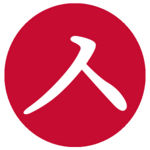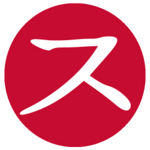Difference between revisions of "Hangeul step 3/zh-hans"
DigitalSoju (Talk | contribs) |
|||
| Line 3: | Line 3: | ||
{| border=0 style="text-align:center; margin-left: auto; margin-right: auto;" | {| border=0 style="text-align:center; margin-left: auto; margin-right: auto;" | ||
|- | |- | ||
| − | | [[File:Back.png|link=Hangeul step 2|150px]] | + | | [[File:Back.png|link=Hangeul step 2/zh-hans|150px]] |
| − | | [[File:Next.png|link=Hangeul step 3b|150px]] | + | | [[File:Next.png|link=Hangeul step 3b/zh-hans|150px]] |
|} | |} | ||
| Line 334: | Line 334: | ||
{| border=0 style="text-align:center; margin-left: auto; margin-right: auto;" | {| border=0 style="text-align:center; margin-left: auto; margin-right: auto;" | ||
|- | |- | ||
| − | | [[File:Back.png|link=Hangeul step 2|150px]] | + | | [[File:Back.png|link=Hangeul step 2/zh-hans|150px]] |
| − | | [[File:Next.png|link=Hangeul step 3b|150px]] | + | | [[File:Next.png|link=Hangeul step 3b/zh-hans|150px]] |
|} | |} | ||
Latest revision as of 01:16, 11 February 2011
|
|
| Help · Cheat Sheet · Community portal |

|

|
In this lesson, you will learn:
Contents
|
| ||||||||||
|
Sounds like the "ai" in air. For full information about this letter, see ㅐ.
|
This is a /s/ sound. When combined with the vowels ㅣ, ㅕ, ㅑ, ㅠ, ㅛ it is pronounced like an "sh" sound. Since we have not learned the last four vowels mentioned, just keep in mind that when ㅅ is combined with ㅣ, it sounds similar to "she" for now. You will be reminded later when you learn the other vowels. For full information about this letter, see ㅅ. | ||||||||||
| 练习 | |
|---|---|
| 새 | |
|
| ||||||||||
|
This sound used to sound different from ㅐ, however these days this sound isn't really distinguished, though the vowel length can be shorter than ㅐ. Similar to the "e" in the English word "bed." For full information about this letter, see ㅔ.
|
This is pronounced like a mix between a B and a P at the beginning of a word, however, when found between vowels the sound is voiced and makes a /b/ sound. For full information about this letter, see ㅂ. | ||||||||||
| 练习 | |
|---|---|
| 베 | |
| 배 | |
| 세 | |
|
| ||||||||||
|
There is no exact sound from English to which ㅓ may be compared. Its sound is somewhere between an "uh" sound and the 오 sound you previously learned. Listen to the audio file carefully! For full information about this letter, see ㅓ.
|
This is pronounced like a mix between a /j/ and a /ch/ sound at the beginning of a word, however, when found between vowels the sound is voiced and makes a sound similar to a /j/ sound, though it is not exactly a /j/ sound. There is a slight difference. For full information about this letter, see ㅈ. | ||||||||||
| 练习 | |
|---|---|
| 저 | |
| 재 | |
| 제 | |
| 서 | |
| 버 | |
|
| ||||||||||
|
There is no exact sound to which ㅡ may be compared in English, so listen to the audio file carefully. For full information about this letter, see ㅡ.
|
This sound is capable of making both an R and an L sound. As the first letter it is sometimes pronounced as a mix between an R and an L sound with the exception of Western loan words where it sounds more like an R sound. Do note that this is not exactly the /r/ sound from English, but instead is a flap R sound like the D sound in the word 'rider' or double T sound in the word 'better'. If you are familiar with the sounds of Spanish it is very similar to the R sound in the word 'caro.' For full information about this letter, see ㄹ. | ||||||||||
| 练习 | |
|---|---|
| 르 | |
| 래 | |
| 레 | |
| 러 | |
| 스 | |
| 브 | |
| 즈 | |
具体例句Real Examples
Practice with these real Korean words. The examples for step 4 have been split. Half of the examples for step 4 are here and half are on the next page.
| 单词 | 发音 |
|---|---|
| 가게 (商店store) | |
| 가로 (横 the width) | |
| 가로수 (行道树 trees lining a street) | |
| 가르마 (分缝 a part in one´s hair) | |
| 가사 (家务the words of a song) | |
| 가수 (歌手singer) | |
| 가스 (烟碳 gas) | |
| 가루 (粉powder) | |
| 개 (狗dog) | |
| 개미 (蚂蚁 ant) | |
| 거기 (那儿there) | |
| 거리 (街道street,distance) | |
| 게 (螃蟹crab) | |
| 기내 (飞机里/飞机上the inside of a plane) | |
| 기다리다 (等待to wait) | |
| 고래 (鲸鱼 whale) | |
| 구조 (救助 rescue) | |
| 나라 (国家country) | |
| 나르다 (般to carry) | |
| 나이 (年龄/年纪age) | |
| 나사 (螺丝screw) | |
| 나비 (蝴蝶butterfly) | |
| 내리다 (下降to go descend) | |
| 네 (是/是的yes) | |
| 내 (我的my) | |
| 네모 (四角 square) | |
| 너구리 (狸 raccoon) | |
| 노루 (獐子 roe deer) | |
| 노래 (歌 song) | |
| 다리 (腿leg, bridge) | |
| 다시 (再/又again) | |
| 대구 (Daegu, the name of a Korean city) | |
| 데우다 (加热to reheat, to heat up) | |
| 도마 (菜板 chopping board) | |
| 도시 (城市city) | |
| 두부 (豆腐soybean curd,tobu) | |
| 드디어 (终于finally) | |
| 드라마 (连续剧drama) | |
| 라디오 (收音机radio) | |
| 러시아 (俄罗斯Russia) | |
| 마루 (地板 wooden floor) | |
| 마리 (只/头 counter used for counting the number of animals) | |
| 마르다 (干to get dry) | |
| 마시다 (喝to drink) | Error: file |
| 머무르다 (停留 to stay) | |
| 매다 ( 结 to tie) | |
| 매미 (蝉 cicada) | |
| 매우 (很very) | |
| 머리 (头head) | |
| 메다 (挑/背 to shoulder) | |
| 메모 (记录memo) | |
| 모두 (都every) | |
| 모래 (沙子sand) | Error: file |
| 모르다 (不知道to not know) | |
| 모자 (帽子cap,hat) | |
| 무게 (重量 weight) | |
| 무대 (舞台 a stage) | |
| 미래 (未来future) | |
| 미로 (迷路labyrinth) | |
| 미소 (微笑smile) |

|

|







